
The United Nations Mission in Liberia (UNMIL) was a United Nations peacekeeping operation established in September 2003 to monitor a ceasefire agreement in Liberia following the resignation of President Charles Taylor and the conclusion of the Second Liberian Civil War (1999–2003). At its peak it consisted of up to 15,000 UN military personnel and 1,115 police officers, along with civilian political advisors and aid workers.

United Nations Security Council resolution 1031, adopted unanimously on 15 December 1995, after recalling all previous resolutions on the conflicts in the former Yugoslavia, the council, acting under Chapter VII of the United Nations Charter, discussed the transfer of authority from the United Nations Protection Force (UNPROFOR) to the multinational Implementation Force (IFOR).
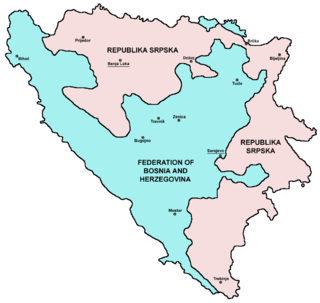
United Nations Security Council resolution 1035, adopted unanimously on 21 December 1995, after recalling Resolution 1031 (1995) and the Dayton Agreement, the Council authorised the establishment of a United Nations civilian police force, known as the International Police Task Force (IPTF) to carry out tasks in accordance with the agreement. It was part of the United Nations Mission in Bosnia and Herzegovina.
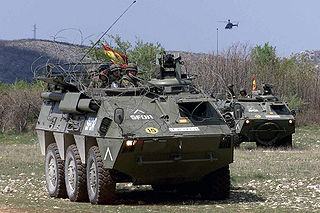
United Nations Security Council resolution 1088, adopted unanimously on 12 December 1996, after recalling all resolutions on the conflicts in the former Yugoslavia and in particular resolutions 1031 (1995) and 1035 (1995), the council, acting under Chapter VII of the United Nations Charter, authorised the creation of the Stabilisation Force (SFOR) in Bosnia and Herzegovina to replace the Implementation Force (IFOR).
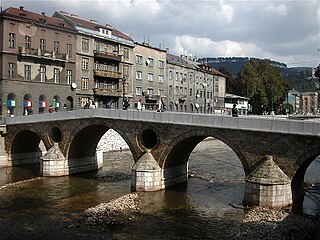
United Nations Security Council resolution 1174, adopted unanimously on 15 June 1998, after recalling resolutions 1031 (1995), 1035 (1995), 1088 (1996), 1103 (1997), 1107 (1997), 1144 (1997) and 1168 (1998), the Council extended the mandate of the United Nations Mission in Bosnia and Herzegovina (UNMIBH) for a period terminating on 21 June 1999 and authorised states participating in the NATO led Stabilisation Force (SFOR) to continue to do so for a further twelve months.

United Nations Security Council resolution 1247, adopted unanimously on 18 June 1999, after recalling resolutions 1031 (1995), 1035 (1995), 1088 (1996), 1103 (1997), 1107 (1997), 1144 (1997), 1168 (1998), 1174 (1998) and 1184 (1998), the Council extended the mandate of the United Nations Mission in Bosnia and Herzegovina (UNMIBH) for a period terminating on 21 June 2000 and authorised states participating in the NATO led Stabilisation Force (SFOR) to continue to do so for a further twelve months.
United Nations Security Council resolution 1305, adopted on 21 June 2000, after recalling resolutions 1031 (1995), 1035 (1995), 1088 (1996), 1103 (1997), 1107 (1997), 1144 (1997), 1168 (1998), 1174 (1998), 1184 (1998) and 1247 (1999), the Council extended the mandate of the United Nations Mission in Bosnia and Herzegovina (UNMIBH) for a period terminating on 19 June 2001 and authorised states participating in the NATO-led Stabilisation Force (SFOR) to continue to do so for a further twelve months.
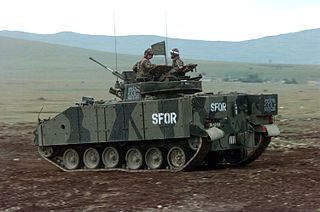
United Nations Security Council resolution 1357, adopted unanimously on 21 June 2001, after recalling resolutions 1031 (1995), 1035 (1995), 1088 (1996), 1103 (1997), 1107 (1997), 1144 (1997), 1168 (1998), 1174 (1998), 1184 (1998), 1247 (1999) and 1305 (2000), the council extended the mandate of the United Nations Mission in Bosnia and Herzegovina (UNMIBH) for a period until 21 June 2002 and authorised states participating in the NATO-led Stabilisation Force (SFOR) to continue to do so for a further twelve months.

In United Nations Security Council resolution 1396, adopted unanimously on 5 March 2002, after recalling resolutions 1031 (1995), 1088 (1996), 1112 (1997), 1256 (1999) and 1357 (2001) on the situation in Bosnia and Herzegovina, the Council welcomed the acceptance by the Steering Board of the Peace Implementation Council on 28 February 2002 of the offer of the European Union to provide a European Union Police Mission (EUPM) to succeed the United Nations Mission in Bosnia and Herzegovina (UNMIBH) from 1 January 2003.

United Nations Security Council resolution 1423, adopted unanimously on 12 July 2002, after recalling resolutions 1031 (1995), 1035 (1995), 1088 (1996), 1103 (1997), 1107 (1997), 1144 (1997), 1168 (1998), 1174 (1998), 1184 (1998), 1247 (1999), 1305 (2000), 1357 (2001) and 1396 (2002), the Council extended the mandate of the United Nations Mission in Bosnia and Herzegovina (UNMIBH) for a period until on 31 December 2002 and authorised states participating in the NATO-led Stabilisation Force (SFOR) to continue to do so for a further twelve months.

United Nations Security Council resolution 1491, adopted unanimously on 11 July 2003, after recalling resolutions 1031 (1995), 1088 (1996) and 1423 (2002) on the conflicts in the former Yugoslavia, the Council extended the mandate of the Stabilisation Force (SFOR) in Bosnia and Herzegovina for a further period of twelve months.

United Nations Security Council resolution 1551, adopted unanimously on 9 July 2004, after recalling previous resolutions on the conflicts in the former Yugoslavia, including resolutions 1031 (1995), 1088 (1996), 1423 (2002) and 1491 (2003), the council extended the mandate of the Stabilisation Force (SFOR) in Bosnia and Herzegovina for a further period of six months and welcomed the deployment of EUFOR Althea at the end of the SFOR's mandate.

United Nations Security Council resolution 1575, adopted unanimously on 22 November 2004, after recalling previous resolutions on the conflicts in the former Yugoslavia, including resolutions 1031 (1995), 1088 (1996), 1423 (2002), 1491 (2003) and 1551 (2004), the council defined the role of EUFOR Althea in Bosnia and Herzegovina as a legal successor to the Stabilisation Force (SFOR).
United Nations Security Council Resolution 1948, adopted unanimously on November 18, 2010, after recalling previous resolutions on the conflicts in the former Yugoslavia, including resolutions 1031 (1995), 1088 (1996), 1423 (2002), 1491 (2003), 1551 (2004), 1575 (2004), 1639 (2005), 1722 (2006), 1764 (2007), 1785 (2007), 1845 (2008), 1869 (2008) and 1895 (2009), the Council extended the mandate of EUFOR Althea in Bosnia and Herzegovina for an additional year until November 18, 2011.

United Nations Security Council resolution 1639, adopted unanimously on 21 November 2005, after recalling previous resolutions on the conflicts in the former Yugoslavia, including resolutions 1031 (1995), 1088 (1996), 1423 (2002), 1491 (2003), 1551 (2004) and 1575 (2004), the Council extended the mandate of EUFOR Althea in Bosnia and Herzegovina as a legal successor to the Stabilisation Force (SFOR) for a further twelve months.
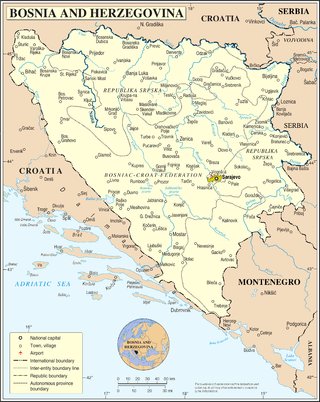
United Nations Security Council Resolution 1722, adopted unanimously on November 21, 2006, after recalling previous resolutions on the conflicts in the former Yugoslavia, including resolutions 1031 (1995), 1088 (1996), 1423 (2002), 1491 (2003), 1551 (2004), 1575 (2004) and 1639 (2005), the Council extended the mandate of EUFOR Althea in Bosnia and Herzegovina as a legal successor to the Stabilisation Force (SFOR) for a further twelve months.

United Nations Security Council Resolution 2019 was unanimously adopted on 16 November 2011, and approved the mandate of European force in Bosnia and Herzegovina.
United Nations Security Council Resolution 1785 was unanimously adopted on 21 November 2007.
United Nations Security Council Resolution 1895 was unanimously adopted on 18 November 2009.
United Nations Security Council Resolution 1869 was unanimously adopted on 25 March 2009.














